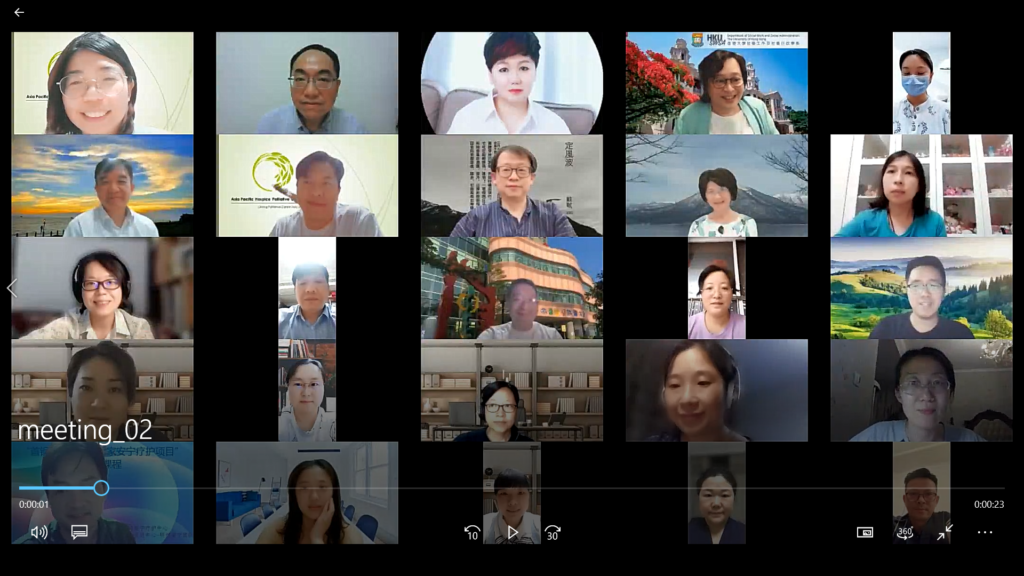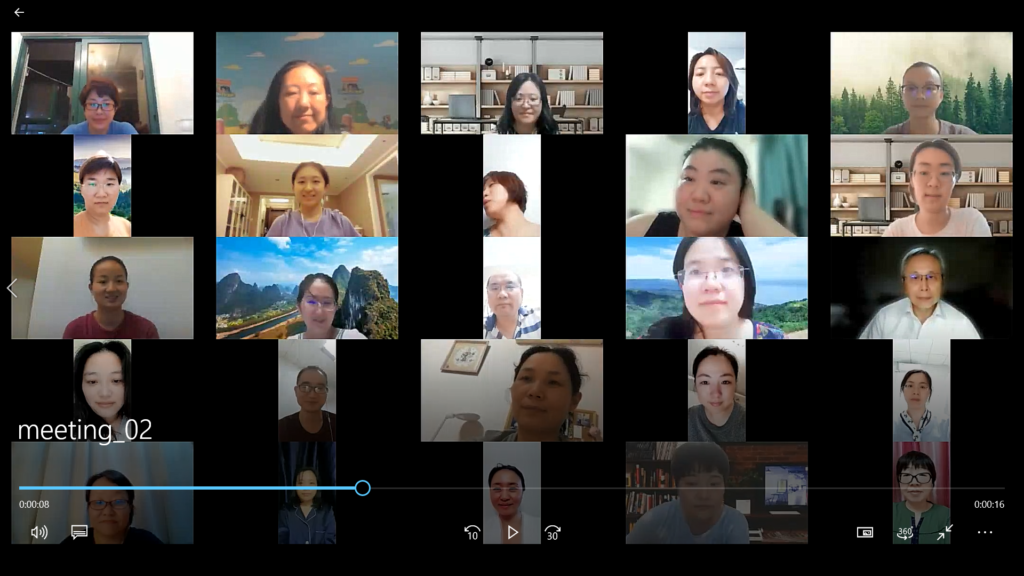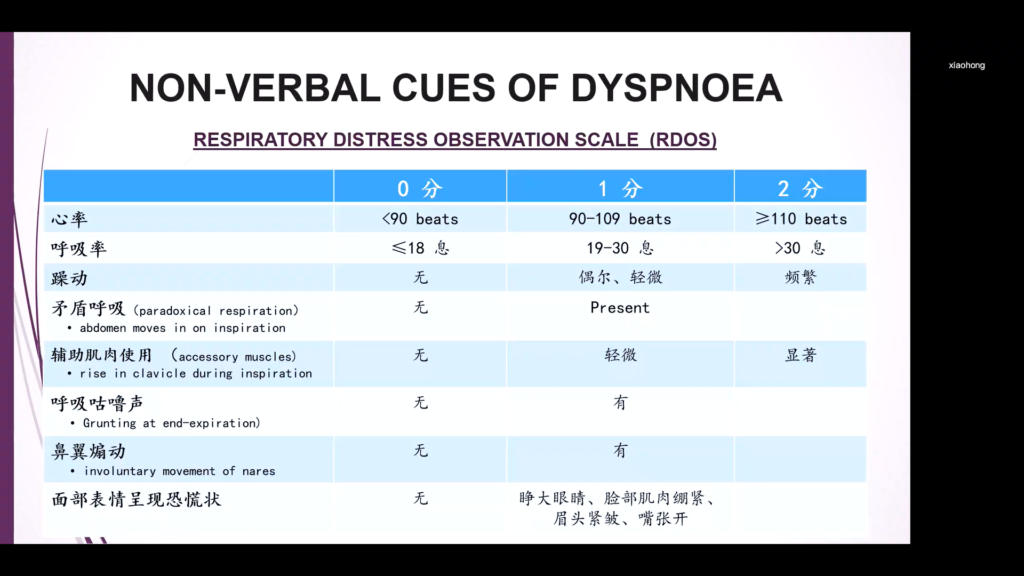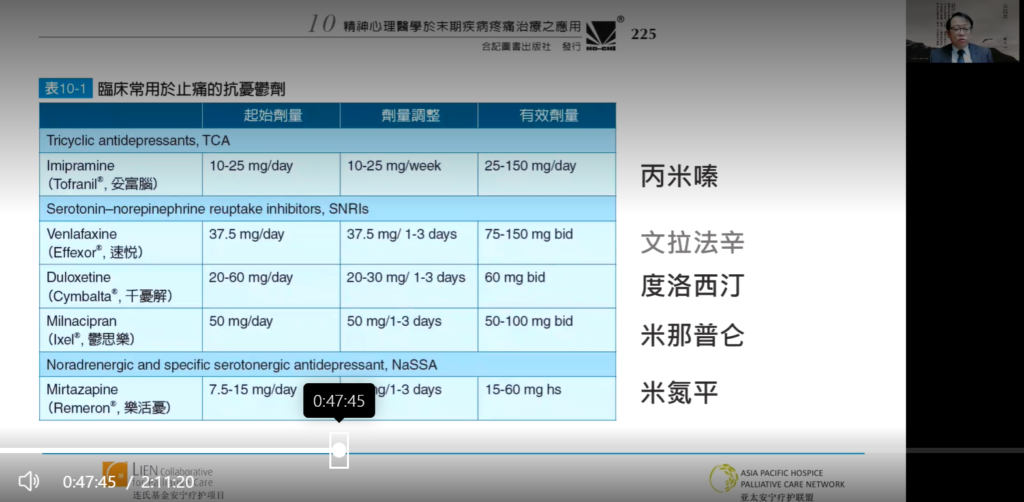A story of a cross straits collaboration
One could hardly imagine in the current backdrop of the COVID-19 pandemic, that a cross-border training programme could still be launched. Bringing together a total of 29 Mandarin-speaking faculty from various regions across Singapore, Malaysia, China, Hong Kong, Macau, and Taiwan and 102 participants from 22 tertiary hospitals in Mainland China, these weekly Thursday Voov meetings were the greatest milestone of APHN’s engagement in China.
When China, making up the majority of the mandarin speaking in the Asia Pacific region, launched the National Health Policy “Healthy China 2030” in 2016, members of the Mandarin Special Interest Group (SIG) was quick to notice that palliative care has been brought up on the national agenda. With this policy shift, the Ministry of Health in China also launched two pilot projects to start palliative care services in 2017, consisting of 5 sites (Ministry of Health China, 2017) and subsequently 71 sites in 2019 (Ministry of Health China, 2019).
Although the Li Ka Shing National Hospice programme has been building palliative care capacity at the community level since 1998, in addition to several local initiatives for palliative care provision at various levels of the health system present for many years, it was with the MOH pilot project that resulted in palliative care starting to have a voice in the mainstream healthcare system. Services started sprouting at tertiary hospitals (i.e. the sites), naming of province-specific training centres, as well as conferences, local trainings with accreditation certificates, soon followed. The government was quick to send off batches of doctors and nurses to the QELCA training programme (St Chistopher’s 2021) based in St Christopher’s Hospice for training to come back and start services and train others.
However, the Mandarin SIG soon found that the QELCA training alone was insufficient in meeting the training needs in China. A programme that was sensitive to the Asian culture taught by Mandarin-speaking faculty was needed. A professional network of palliative care workers would also help provide support for the team starting services at the pilot sites. APHN quickly assembled a steering committee to look specifically into curating a training programme, chaired by Dr KK Yuen.
The programme which consists of 3 components (a) Foundation Course + Clinical Case Discussions (Online), (b) Mentoring (Online), and (c) Clinical bedside teaching (Onsite), called the “华人安宁培训计划 2021“ (China Training of Trainers programme) was born after rounds of hard work by the steering committee and the faculty members. It began on 22 July 2021 and as of 31 December 2021, 13 of the 20 sessions of the foundation course, 6 out of 20 of the clinical case discussions, and 1 out of 12 of the mentoring session were completed.
Here are some pictures of the training which takes place on Thursday evenings, 7.30-9.30pm (GMT+8) on Voov.


The project is ongoing with Part (a) of the programme scheduled to finish at end of June and (b) projected to finish on 22 October 2022. Part (c) of the programme is currently on hold due to the ongoing pandemic.
If you would like to find out more about or contribute to the programme, please contact the Executive Director of APHN, Mr Giam Cheong Leong at giamcl@aphn.org
Appendix:
Steering committee members
- Dr Yuen Kwok Keung (Chair)
- Dr Chun-Kai Fang
- Prof Lin Chia-Chin
- A/Prof Amy Chow
- Dr Wang Ying Wei
- Ms Theresa Lai
- Dr Shirlynn Ho
- Ms Joyce Chee
- Prof Cynthia Goh (Advisor)
Programme staff in charge
Mr Giam Cheong Leong
Ms Joyce Chee
Ms Zhang Fan
Mr Jiak Jee Lee
Faculty Members (as of 31 December 2021)
- Dr Neo Han Yee (Co-Leader)
- Dr Chen Ru Yi (Co-Leader)
- Ms Shih-Yin Zhang
- Ms Lu Hsin Yain
- Ms Chia Gerk Sin
- Ms Susan Xu Zhi Zhen
- Ms Emily Yap
- Mr Fong Yee Leong
- Prof Magaret Suen
- Dr Ning Xiao Hong
- Dr Qin Yuan
- Dr Dai Xiao Yan
- Ms Sha Rui
- Ms Joanna Tham
- Dr Lee Chung Seng
- Dr Aw Chia Hui
- Dr Helen Chan
- Dr Annie Kwok Oi Ling
- Ms Helen Chiu
- Ms Poon Yin
- Ms Jade Lam
- Dr KK Yuen
- Dr Chun-Kai Fang
- Prof Lin Chia-Chin
- A/Prof Amy Chow
- Dr Wang Ying Wei
- Ms Theresa Lai
- Dr Shirlynn Ho
- Ms Joyce Chee
- Dr Enoch Lai (Advisor)
Participating hospitals (in no particular order)
- 北京协和医院
- 复旦大学附属肿瘤医院
- 四川大学华西第四医院
- 云南省第一人民医院新昆华医院
- 中国医科大学附属盛京医院
- 北京海淀医院
- 北京大学首钢医院
- 北京医院
- 德阳市中西医结合医院
- 南京明基医院
- 吉林大学第一医院
- 洛阳市中心医院安宁疗护中心
- 上海中医药大学附属岳阳中西医结合医院
- 上海市普陀区利群医院
- 成都市第八人民医院
- 北京王府中西医结合医院
- 河北省中医院
- 北京和睦家医院
- 北京清华长庚医院
- 儿童舒缓雏菊之家
- 南京医科大学附属儿童医院
- 上海交通大学医学院附属上海儿童医学中心
Background story:
As with all pioneering work, APHN’s formal engagement with China started in 2015 with our first Mandarin Hospice Summit held as part of the 11th Asia Pacific Hospice Conference (APHC), hosted at Taipei city. The China Special Interest Group (SIG) was formed with a group of like-minded individuals, looking at how APHN could be a part of China’s palliative care developments. Since then, the Summits during each APHC have become part of the conference highlights.
Fast forward to 2021, the group was renamed “Mandarin SIG” to include other regions in the Asia Pacific with Chinese ethnicity. Considering the uniqueness of shared culture, family dynamics, and taboos around death of patients from Chinese families around the region, the Mandarin SIG hopes to gain synergy through collaborative efforts. Currently, the group is chaired by Dr Chun Kai Fang.
The idea of a training programme originally came from the SIG, that also takes charge of organising the summits and engagement activities for the community. However, due to the scale of the project involved, a steering committee was formed for this China Training of Trainer’s (CTOT) programme.
References:
- MOH policy 2017 http://wsjkw.sc.gov.cn/scwsjkw/sclljk/2017/10/27/6d9318ad60734956b77e5483131ffe6c.shtml
- MOH policy 2019 http://www.nhc.gov.cn/cms-search/xxgk/getManuscriptXxgk.htm?id=efe3ed3d9dce4f519bc7bba7997b59d8
- QELCA programme https://www.stchristophers.org.uk/qelca
Written by: Ms Joyce Chee (APHN Mandarin SIG member)


